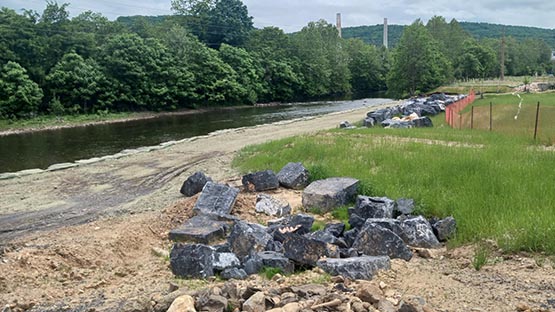
Our Changing Climate
Heat and fires
“A Hotter Future Is Certain, Climate Panel Warns. But How Hot Is Up to Us.” “IPCC’s starkest warning yet.” Question is: Are politicians and corporations paying attention? Many more stories attest to the seriousness of our collective situation: The Guardian, The New York Times,
Siberian Wildfires—Bigger than all the rest combined, worldwide. Even so, the huge western US wildfires are creating their own weather—and clouds that produce lightening that can spark new fires. The scale in the western US is almost unimaginable: 100,000 acres burned near Sacramento; make that “143.900 acres”; our smoke warning systems aren’t robust enough; “Our future [in the Sierra Nevada] might not look the same”; “Wildfire smoke claims more than 33,000 lives each year”, not counting “long term exposure”; the Dixie fire—nearly 1 million acres; “World’s largest tree wrapped in fire-resistant blanket as California blaze creeps closer”.
High temperatures are everywhere: Sicily, Pacific Northwest.
Methane emission reductions are imperative, says latest IPCC report.
Water: Drought, flooding, hurricanes, sea ice loss, sea level rise
Hurricane Ida’s damage to Louisiana—to the coast. Future prospects (not so good); to coastal residents; to electricity customers’ pocketbooks. Abandoned oil and gas infrastructure off its shores. Oil spills. Water crisis. Lawsuits against oil companies for damages. Keeping the lights on—National Geo weighs in.
Lots of flooding. Climate change help set up conditions for Tennessee’s recent problems (“walls of water”); also Germany’s and Belgium’s. Ditto for New York. The bad news? More coming.
“Drought pummels agriculture across the West.” It’s hard to grow cantaloupe when there’s no water. The US tied a 1936 Dustbowl record this summer.
Rainfall on Greenland’s ice sheet—a first in history. Mount Shasta is “nearly snowless.”
Fishing in North Carolina—Climate Change’s Burden—part of the Changing Tides series.
Plastics, chemicals, and waste
Humans have dumped unbelievable quantities of plastics into the ocean. Some of it (not enough) is being eaten by bacteria—thanks to the “‘plastisphere’: the synthetic ecosystem evolving at sea”!
Plants, animals, and wild places
A new measurement—“green status of species”—will help us understand how well, or not, we’re doing. Who knew some plants are voracious accumulators of precious metals?
Positive Steps—Some More Positive than Others
Policy Makers, Politicians, Media, Judiciary, and Scientists
Biden is improving car emission standards—but not enough. EV sales are increasing.
The President and some members of Congress continue to push for legislation. Can the Fed help? Lobbyists are putting in their two cents. Could there possibly be a bipartisan approach? What could a Climate Corps do; here are some answers?
Scientists in Oregon are studying a way to combat climate change’s “evil twin”, ocean acidification, with a de-acidification project in a bay. To give oysters a better chance, they’re buffering “incoming seawater with sodium carbonate” to reduce the acidity.
The UK’s “green economy” is four times larger than its manufacturing sector.
Can we rely on what we read and hear? Many think the oil industry willfully misled us. A House panel is investigating. Just how certain are we about the “existential threat”?
The IPCC and other reports are generating calls for urgent action on infrastructure and other efforts to address the crisis. RMI says we have solutions; we need to act. Several climate scientists’ advice: Don’t despair. Sometimes, it’s hard not to. Some activists ask: “Is this our last chance to pass meaningful legislation?” For example: Clean energy tax incentives. Local versus more distant solar? How about both—and fast?
A Federal judge puts a halt—at least temporarily—on the prior administration’s permit for a “project … to produce more than 100,000 barrels a day on the National Petroleum Reserve-Alaska.” On the other hand…. “US to restart oil leasing with offshore auction this year”—by court order.
Others—People, Countries
A former “steak-eating bodybuilder”, now vegan, has “rewilded” his 1,000-acre estate in Ireland. Not to be outdone, a famous UK farmer wants to transform farming to save the planet and is doing it on his farm.
Like bananas? Puerto Rico is working to ensure we’ll have them around going forward.
Small towns: Sometimes you can move uphill. Sometimes not.
Saving California’s kelp forests—from zombie sea urchins.
“Indigenous resistance has staved off 25 percent of California and Canada’s annual emissions.”
Iceland has a carbon removal facility. So do the oceans, which have creatures called “siphonophores.”
Imagine 2200—Writers come up with 12 amazing scenarios.
Energy
Fuel Sources, Utilities, Electric Grid
Pipelines—their opponents, their effects—are still with us. In Minnesota. In Mississippi. In Ohio. In Tennessee. In Michigan.
Warnings that hydrogen may not be a “clean” fuel source appeared in a recent study. Turns out a big problem isn’t the gas itself; it’s the way it’s currently obtained. Hopefully new, cleaner, and scalable extraction methods for “green” hydrogen can be found to replace “blue” hydrogen’s dependence on natural gas. Georgia is betting on hydrogen; a hydrogen equipment company has located there.
Utility companies and solar companies haven’t always seen eye to eye. A large solar company just hired a former utility executive as its CEO. Utilities’ bottom lines are significantly affected by large weather events. One utility—and perhaps others—are looking hard at weather data using sophisticated analysis tools to help prepare for such events.
Texas—There’s a “solar versus trees” battle of sorts happening. Some in the oil industry believe a change in their ways of operating is needed.
Louisiana—Despite the reluctance to embrace renewable energy opportunities, including solar farms, a University of Louisiana professor is studying what solar farms and other renewables could mean. State policy is hostile to distributed solar. Ray of hope? A tank farm wants to expand to handle renewable fuels.
North Carolina—Brunswick County Supervisors don’t want offshore wind, believing it would damage tourism. NC’s PBS ran a program about how solar and wind development can help rural areas—Episode 12, Renewable Energy in Rural Areas (I watched it while at the Outer Banks this week.). Not everyone agrees, including some residents of Gold Hill. A Virginia blogger’s take on development and sea level rise.
Florida—A Tampa utility’s hype about its reduction in its deployment of coal and increase in solar leaves out some important details (think: natural gas).
Colorado—Its Clean Heat Standard sets clean energy requirements for utilities; it’s potentially a model for other states.
Buildings and Transportation
Georgia is also betting on electric vehicles. It just paid millions for undeveloped land it hopes will be the home of an EV manufacturing facility. And it’s working with the USMC to support more EVs by providing some Level II chargers. A clean energy conference in August indicated some Georgians want to understand its possibilities.
California is taking carbon reduction seriously. It’s mandating solar and battery storage for some new residential and commercial buildings. The Feds want us all to use more energy efficient lighting and is proposing to require that light bulbs don’t waste energy through heat output.
If the cheapest energy is what we don’t use, then improving our energy efficiency may be the next best alternative. ACEEE says Congress can give us all a standard to show the way.
If EVs are part of the solution, we need to figure out how to pay for their accompanying infrastructure—charging stations.
Problem: “EVs, Solar, & Energy Storage: Ignoring The Science That Will Save Us”
Ideas, Entertainment and Information
Canary Media put together a climate playlist on Spotify. It also showcased En-ROADS, a climate simulator. Use it to compare “positive” actions (like adding solar) and not-so-positive ones (like continuing to build natural gas plants). Example, how much does it matter that renewables now account for 25% of US installed generating capacity, but renewables are still second to natural gas?
Trees can help slow climate change. What if we made sure to protect the trees we have? Unfortunately, Amazonian deforestation is continuing apace.
This map “tells the Story of Two Americas: 1 parched and 1 soaked.”
Time article: “In the Face of Climate Change, We Must Act So That We Can Feel Hopeful—Not the Other Way Around”
Finding “green” cleaning products. Tips for “greening your laundry routine”—remember clothes lines?
Lovely story about growing a garden on a building’s terrace in the shadow of where the World Trade Towers used to be.
Could we possibly be at “peak car” levels?
Ever heard of “Captain Planet”—TV show from the 1990s? What about these?
Gorgeous pix of glacial caves.
Real time climate action tracker.
Late night show hosts will tackle climate change starting September 22.
Submitted by Joy Loving, CAAV Steering Committee










